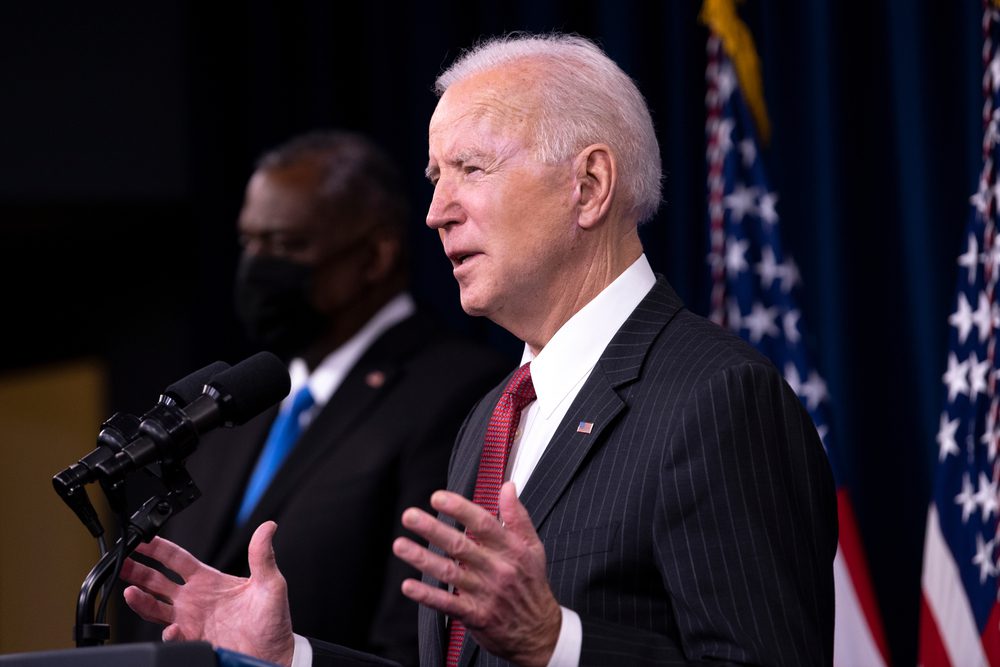
“For God’s sake, this man cannot remain in power,” American President Joe Biden said to a Warsaw crowd on Saturday, March 26th. What was intended to be a unifying address to a refugee-laden Poland turned alarming, just at its conclusion, by what seemed like a call for regime change in Russia.
To limit the damage, Secretary of State Antony Blinken came out with a statement that the U.S. has no such plans. His effort was largely in vain however, as the Kremlin did not take kindly to the POTUS’s intemperate remark. On Monday, the Kremlin designated the remark as a cause for concern, promising to “keep a close eye” on Biden’s future statements. Opinion was divided over whether this was a gaffe, an ad-lib, or an escalation on Biden’s part, made during the last leg of his European trip. At any rate, major allied leaders on the continent, like French president Macron and German chancellor Scholz, did not feel inclined to hitch their wagons to Biden’s rhetoric, labeling Putin “a butcher” and “war criminal” within the same twenty-four hours.
Biden’s rallying cry at Warsaw’s Royal Castle recalled former U.S. President Ronald Reagan’s famous ‘tear down this wall’ speech in West Berlin of June 1987. Evoking Poland’s decades-long Soviet subjugation behind the Iron Curtain, Biden painted a picture of ideological strife between the world’s democracies and an autocratic Russia:
A dictator bent on rebuilding an empire will never erase the people’s love for liberty. Brutality will never grind down the will to be free. Ukraine will never be a victory for Russia, for free people refuse to live in a world of hopelessness and darkness. We will have a different future, a brighter future rooted in democracy and principle, hope and light, of decency and dignity, of freedom and possibilities.
The speech did little to lower tensions and, some fear, might even jeopardize peace in Ukraine.
Biden’s incendiary remark was only the latest of his diplomatic slipups during his mission to bolster ties between NATO members and European allies. One day earlier, while talking to members of the 82nd airborne division in the southeastern Polish city of Rzeszów, he seemed to hint at a future presence of American forces in Ukraine—which, if detected and attacked, could trigger a war between NATO and Russia.
Ukrainian people have a lot of backbone, they have a lot of guts and I’m sure you’re observing it. And you’re gonna see when you’re there, and some of you have been there. You’re gonna see, you’re gonna see women, young people standing, standing in the middle, in front of a damn tank, just saying I’m not leaving. I’m holding my ground. They’re incredible. But they take a lot of inspiration from us.
The incident forced a White House spokesperson to explain that previously, Biden had been clear: “we are not sending U.S. troops to Ukraine and there is no change in that position.”
When grilled about the ‘regime change’ comment by reporters the following Monday, Biden was not willing to “walk anything back.” He explained he said it out of “moral outrage,” and that it was a “personal feeling.” Asked by a reporter whether he felt it might be difficult to determine when something he says is either a statement on policy (as the Commander in Chief of U.S. forces) or a personal feeling, he denied that to be the case. When further pressed, he became agitated, saying it was “ridiculous,” that “no one believes we are going to be taking down Putin” and that the “last thing he wants” is to engage “in a land war or nuclear war with Russia.”
Biden’s performance in Brussels earlier that week, where NATO, the G7, and EU leaders all held meetings, did not instill much confidence in American leadership either. During his news conference at NATO headquarters on March 24th, a reporter asked Biden whether the use of chemical weapons in Ukraine would trigger a military response from NATO. To this, the president replied it “would trigger a response in kind,” and that “we’d make that decision at the time.” This led many to speculate whether Biden meant NATO would also resort to chemical weapons or whether Biden just misspoke. Afterwards, his entourage had to specify, saying that he meant “proportionally,” and not “in kind.”
During this delicate moment in time, it is the 79-year-old Biden’s imprecise, overstated language that has prominent commentators openly questioning his fitness for the job. This is only exacerbated by not unfounded suspicions about cognitive decline—known to be accompanied by angry outbursts—and the possibility of having been compromised over his son Hunter Biden’s dealings in Ukraine.
Tucker Carlson: "Joke's over … If there was in US history ever a time to invoke the 25th Amendment, it is now. As Joe Biden himself put it, 'For God's sake, this man cannot remain in power.'" pic.twitter.com/aJMflnbj6U
— The Post Millennial (@TPostMillennial) March 29, 2022
Little surprise it is then that, on the homefront, his popularity has taken a nosedive. A recent NBC News poll indicates that Biden’s approval rating now is the lowest of his entire presidency. With the November midterm elections looming and a worsening inflation crisis to contend with, Biden’s Democrat Party is bracing for impact.
